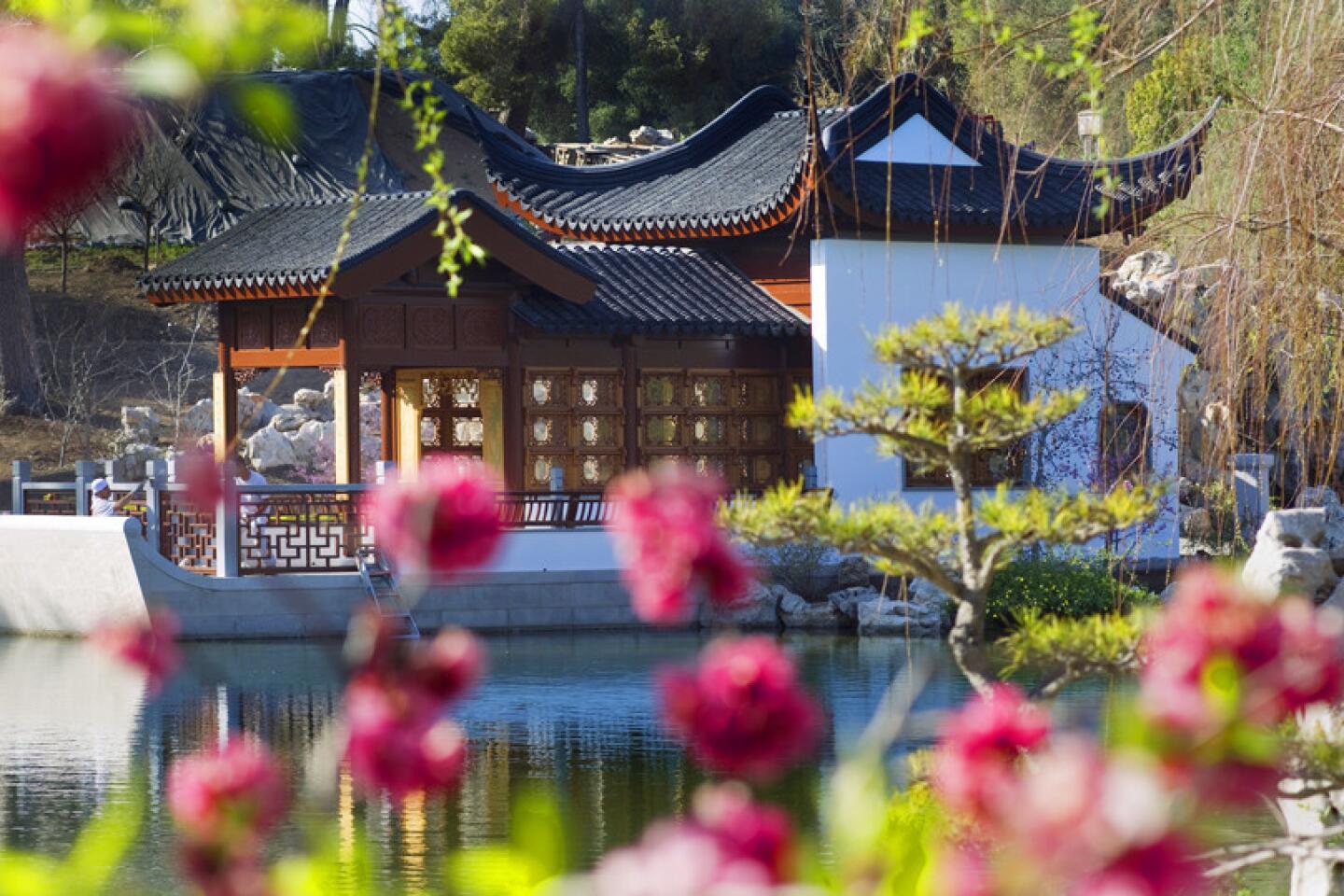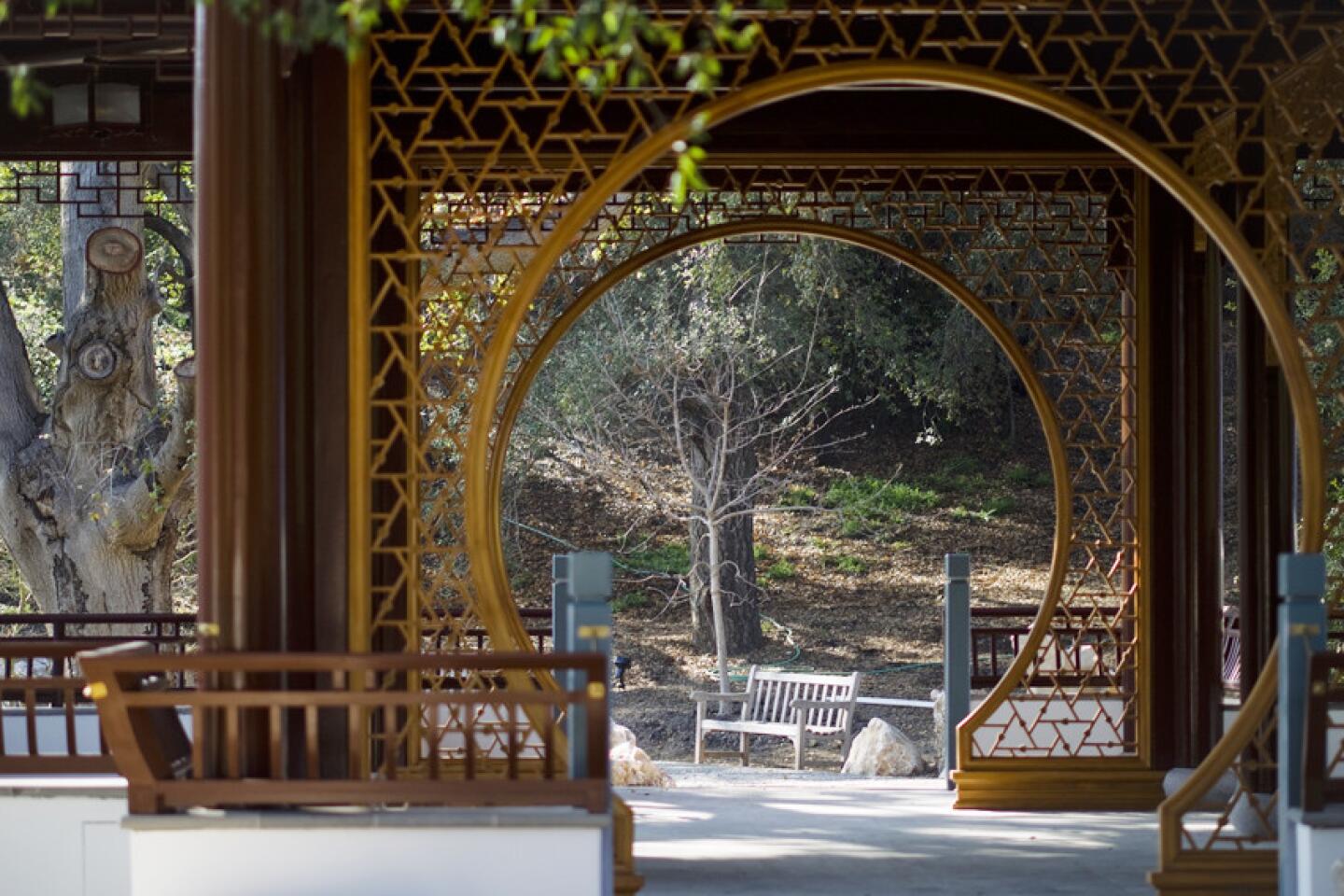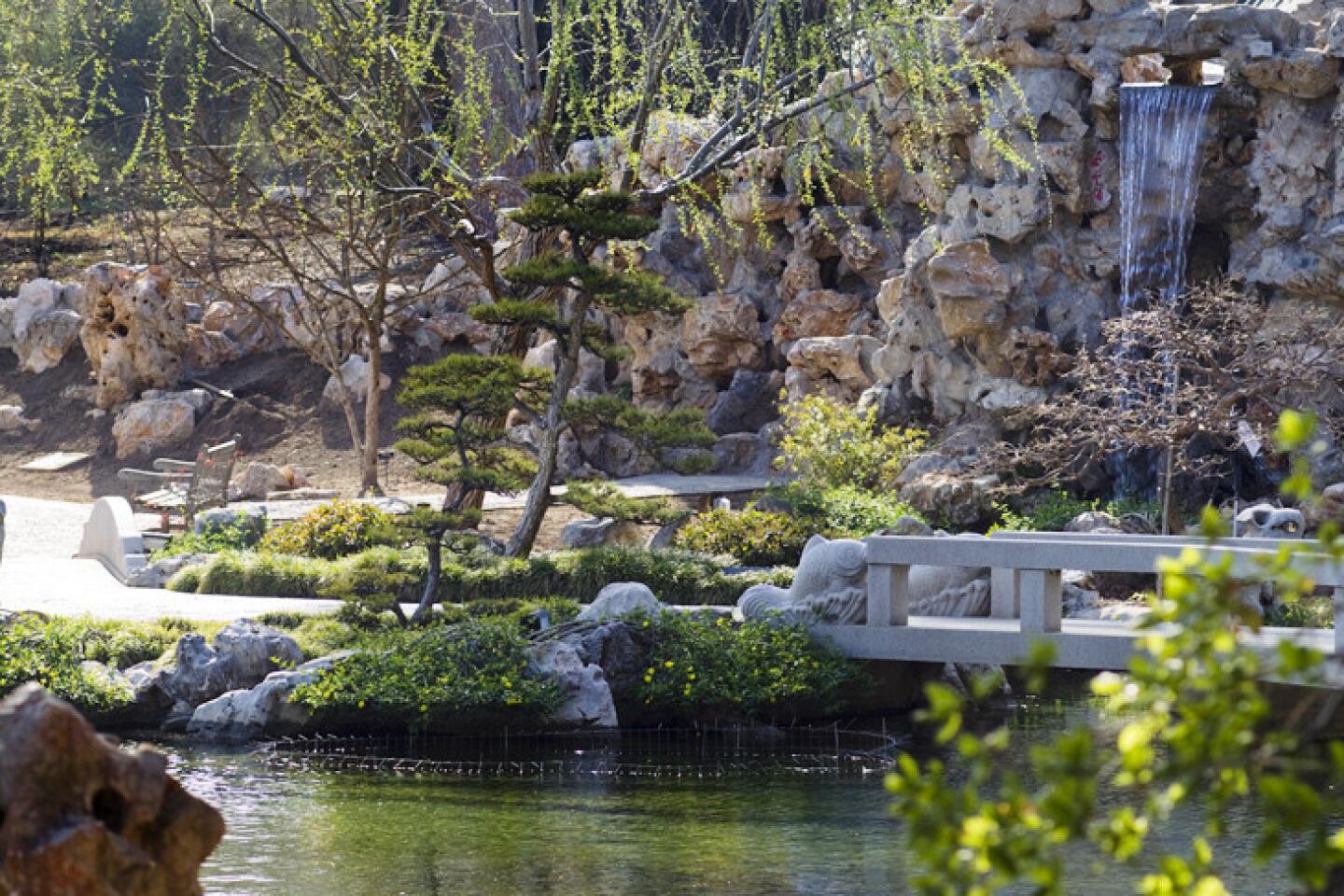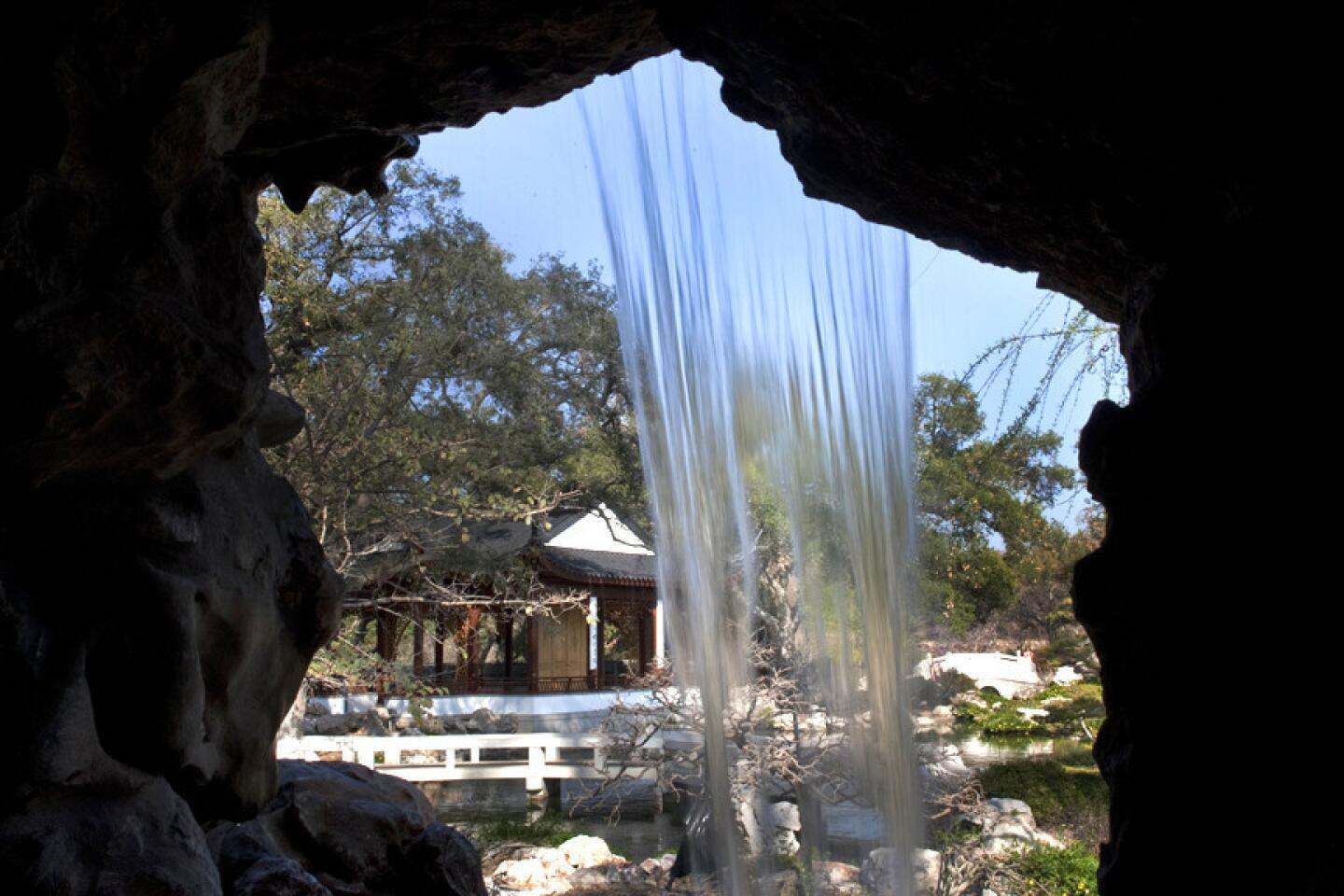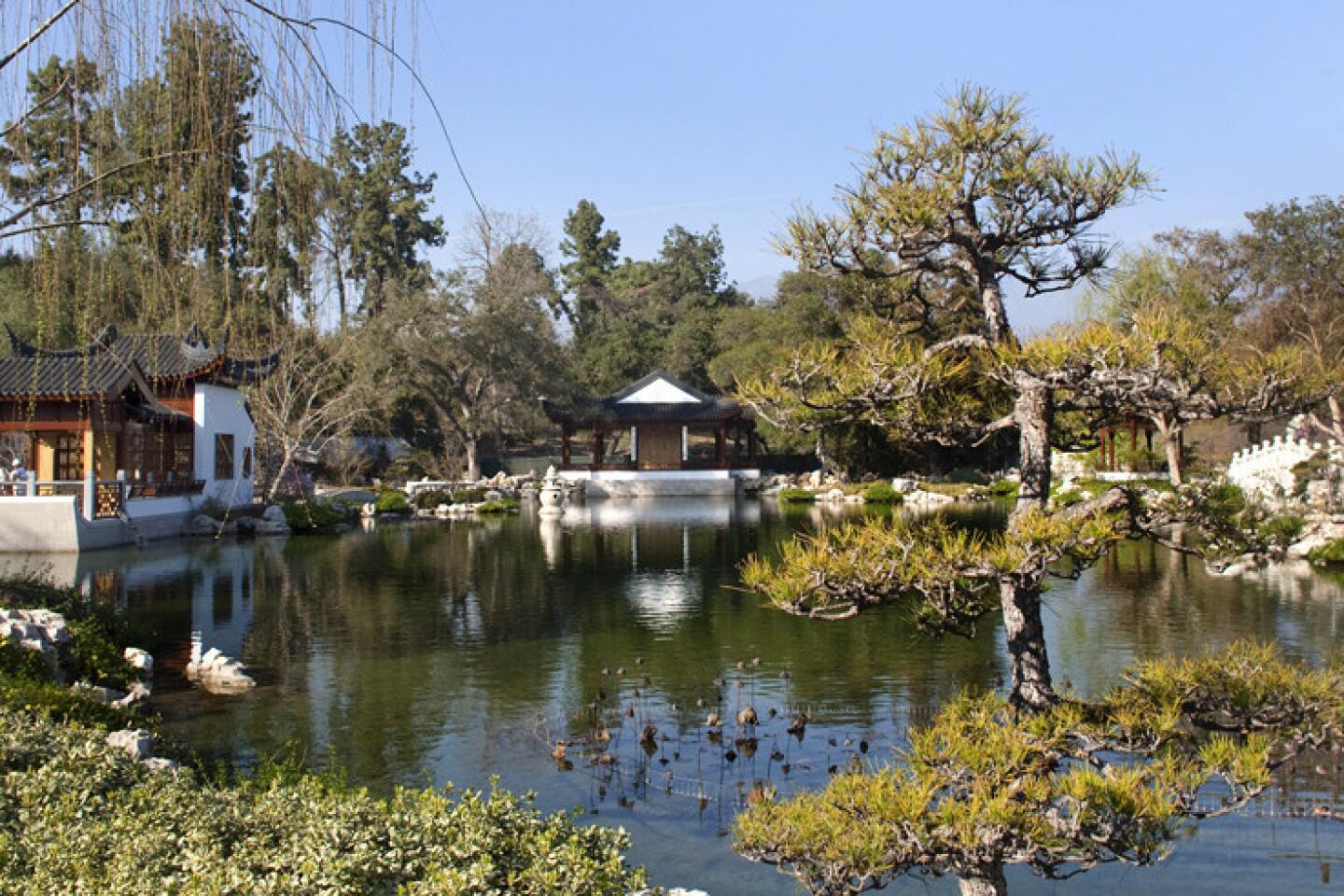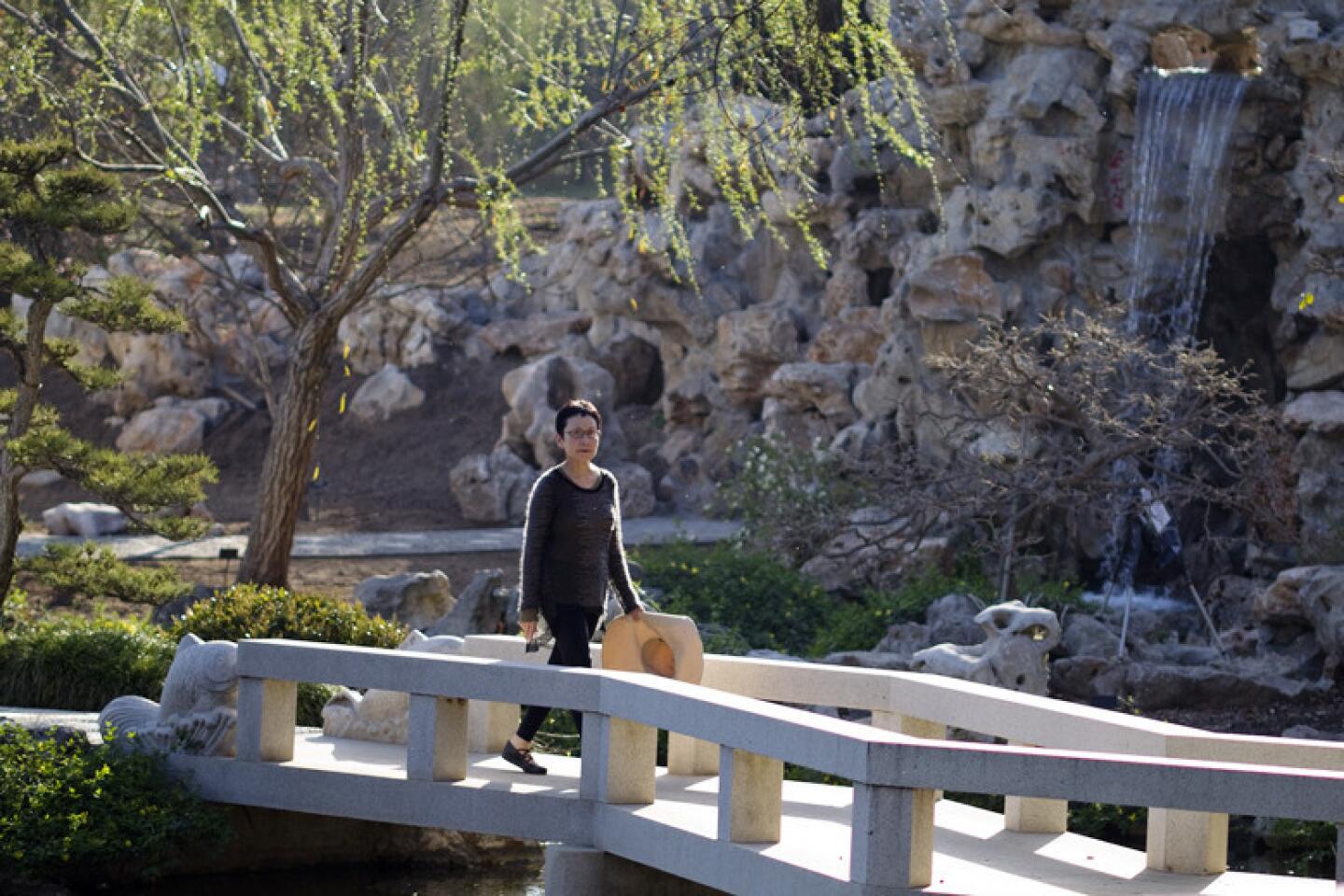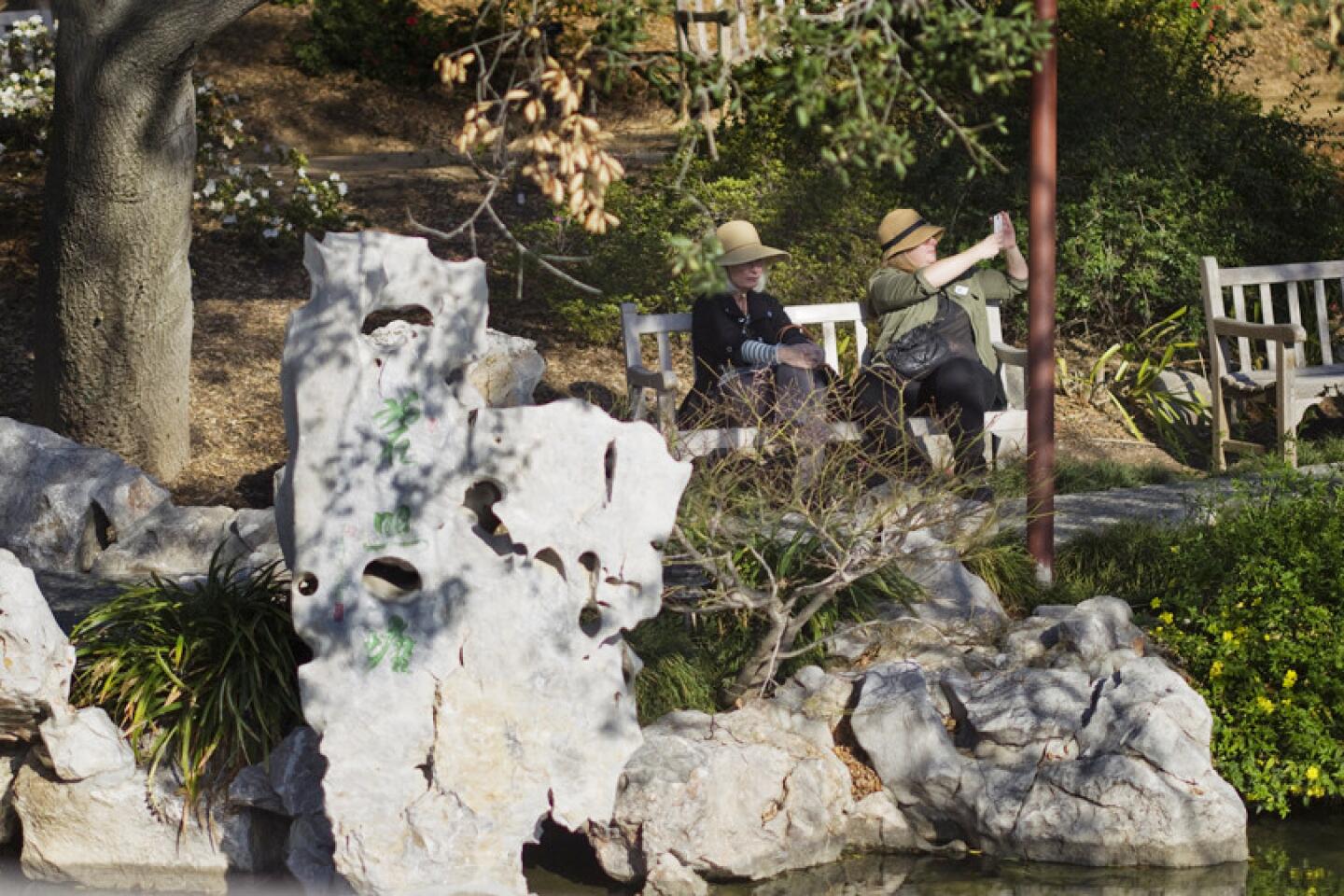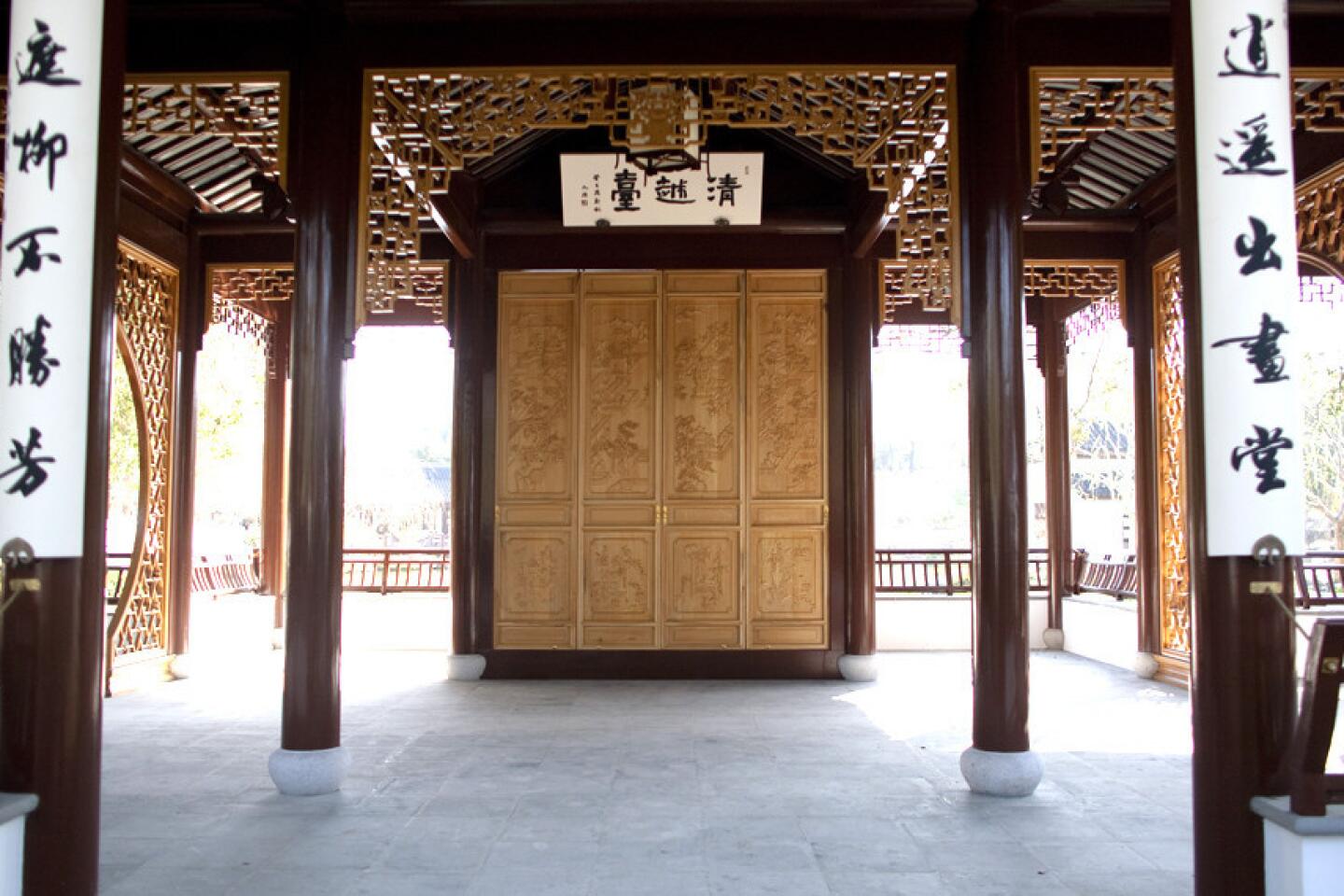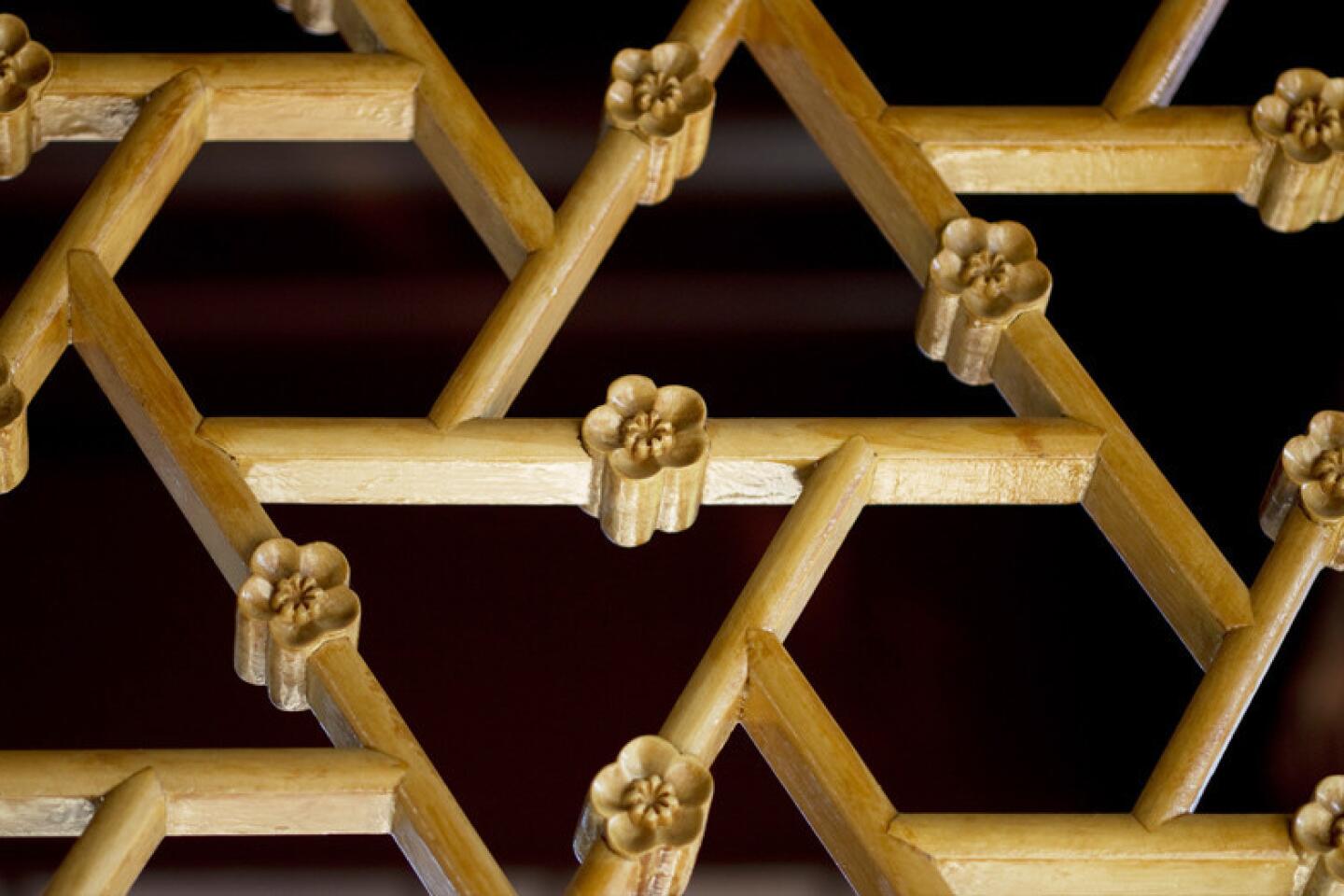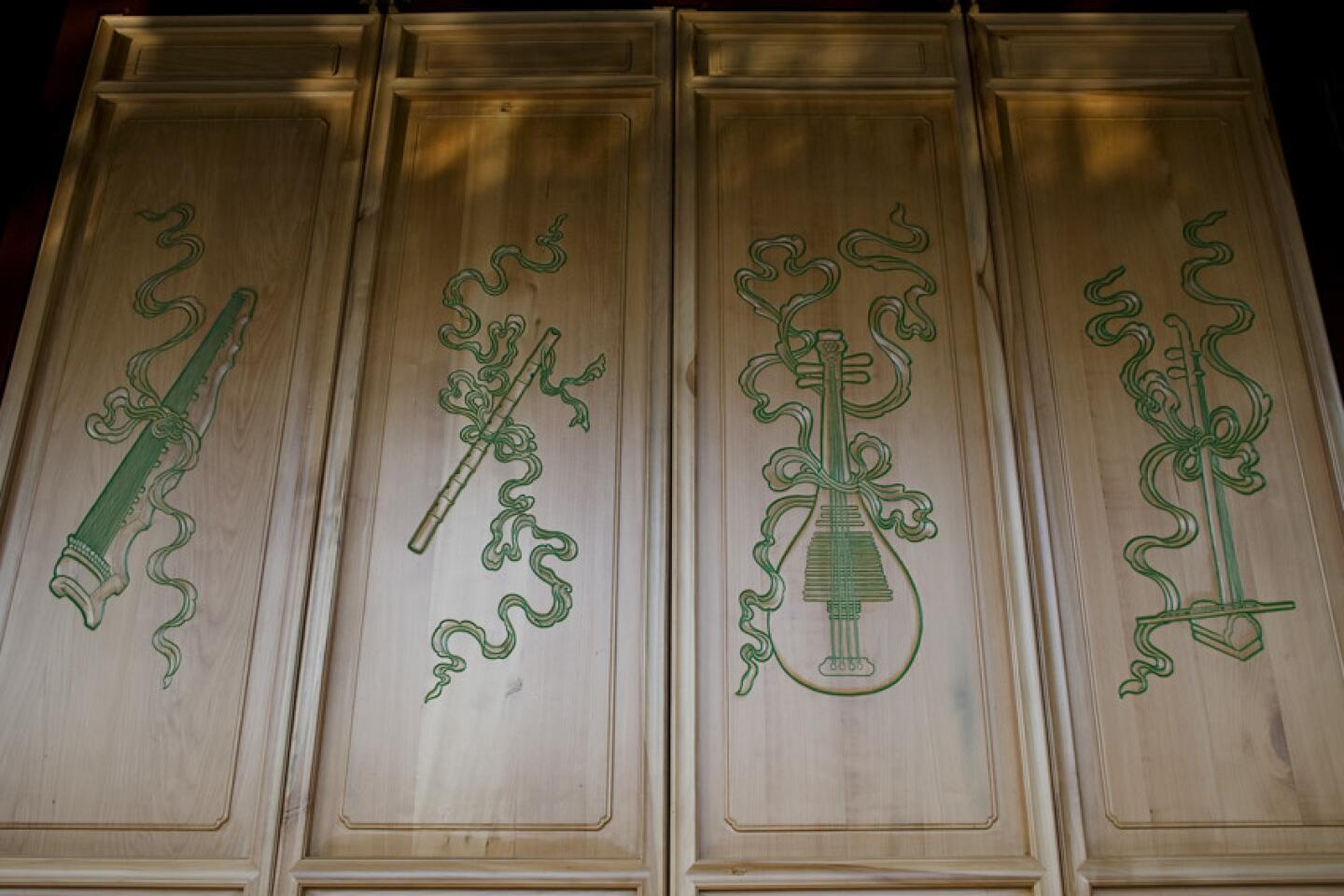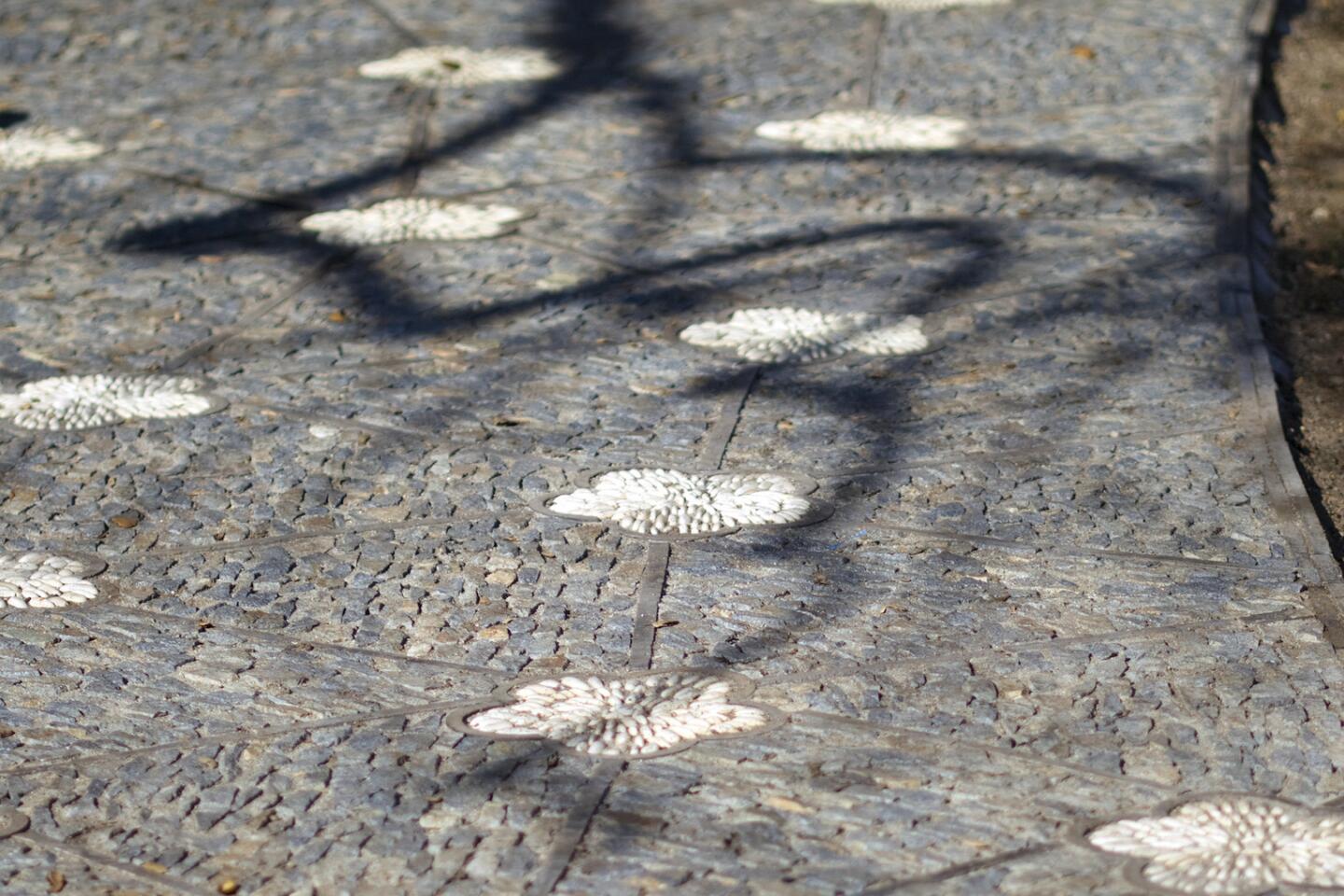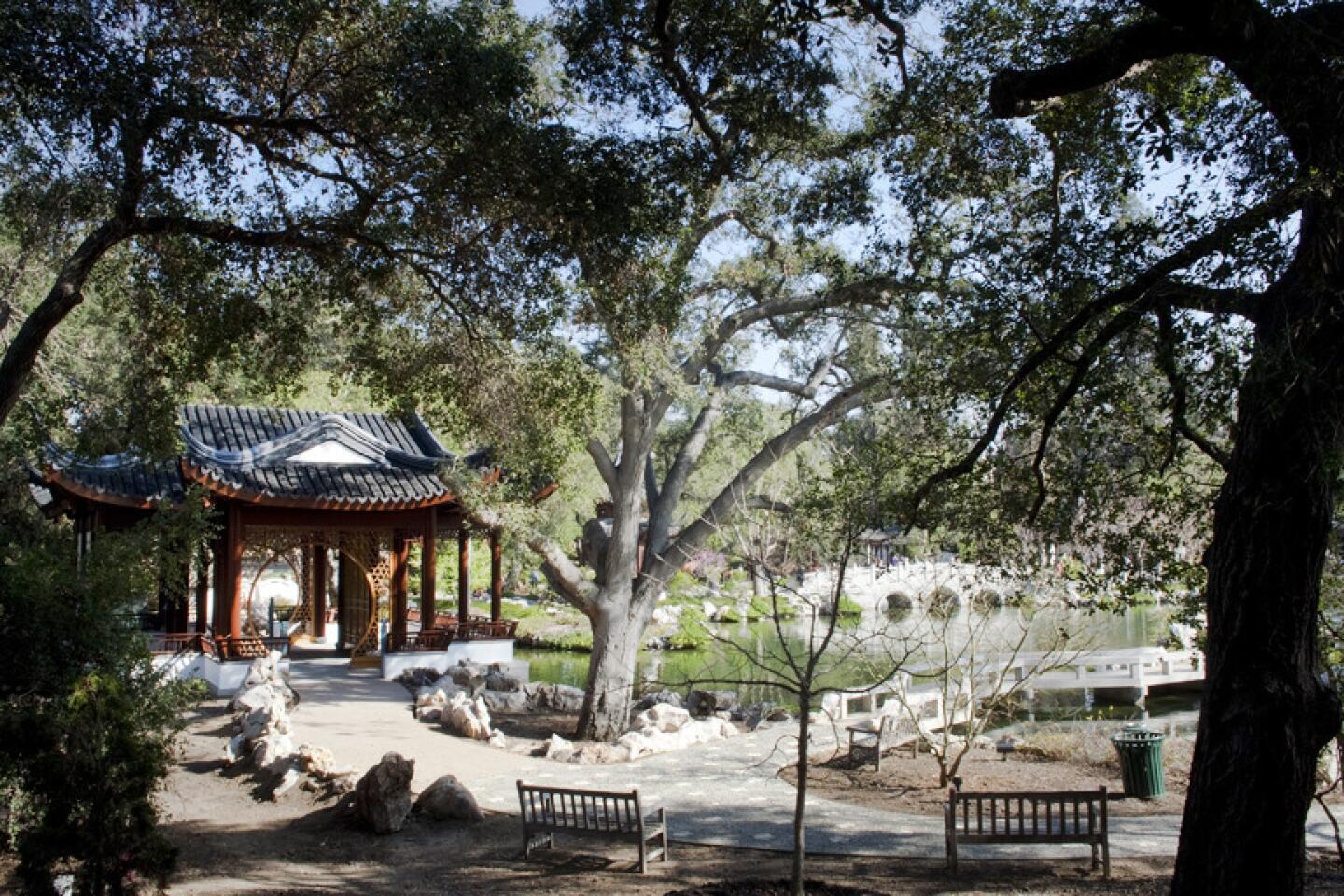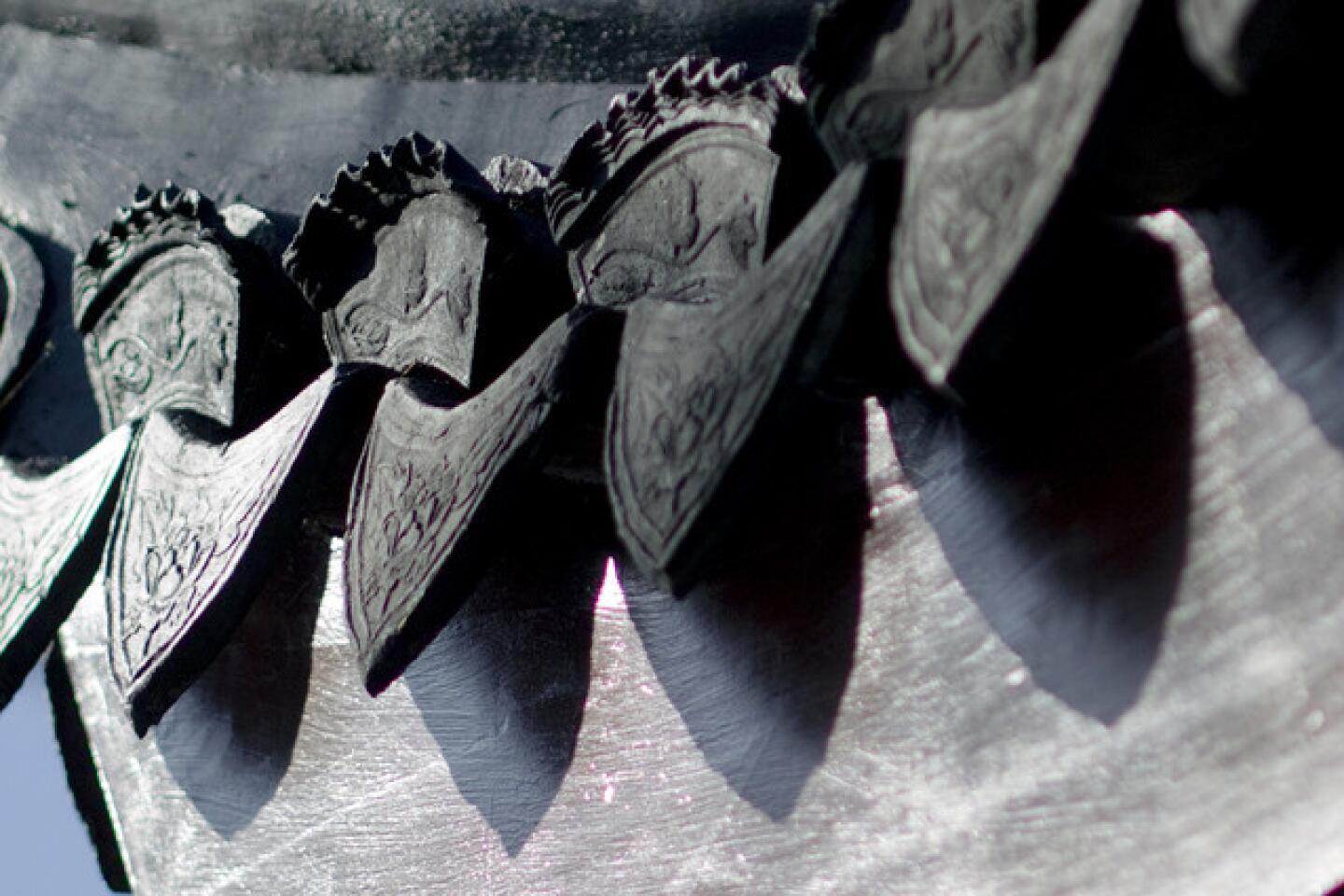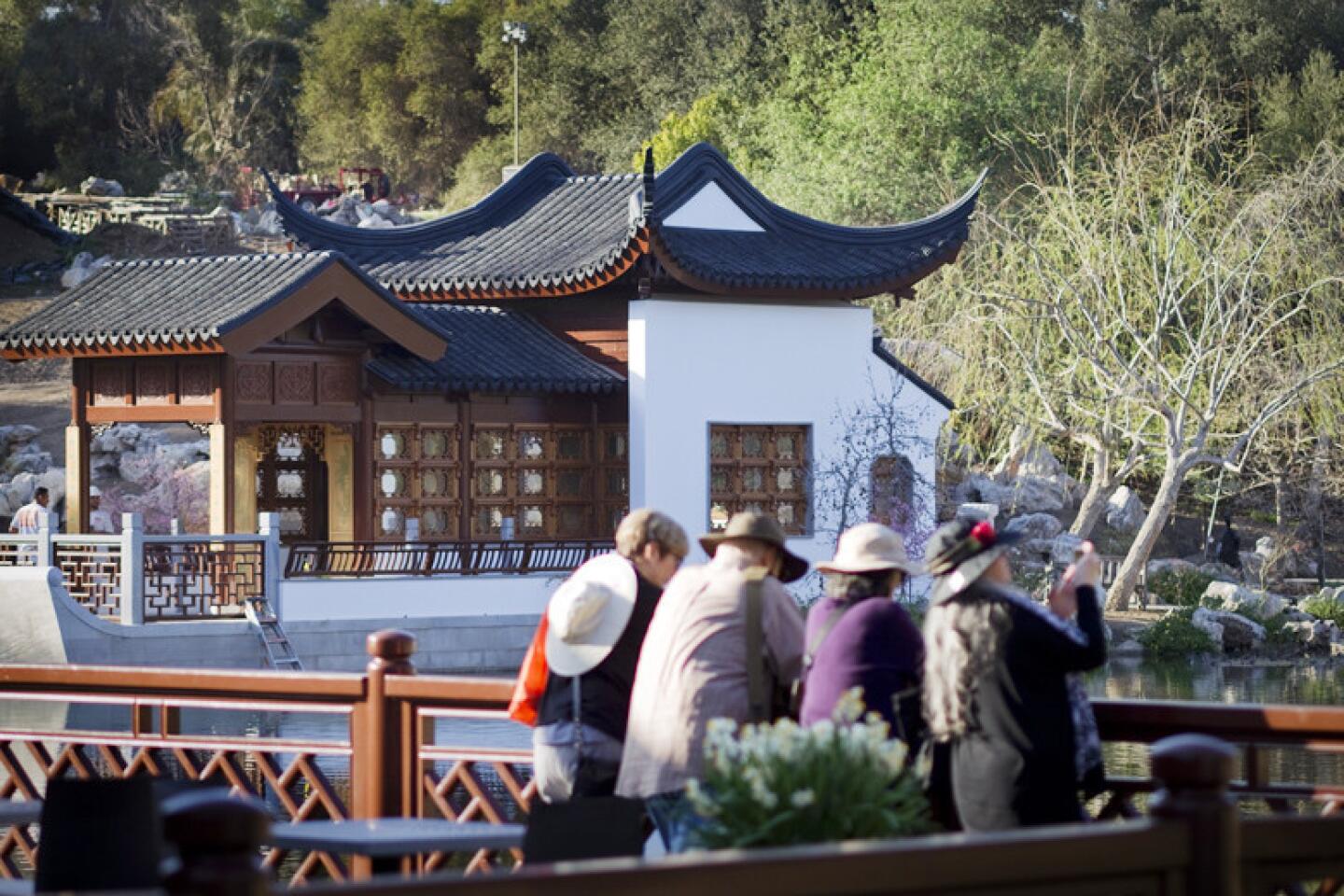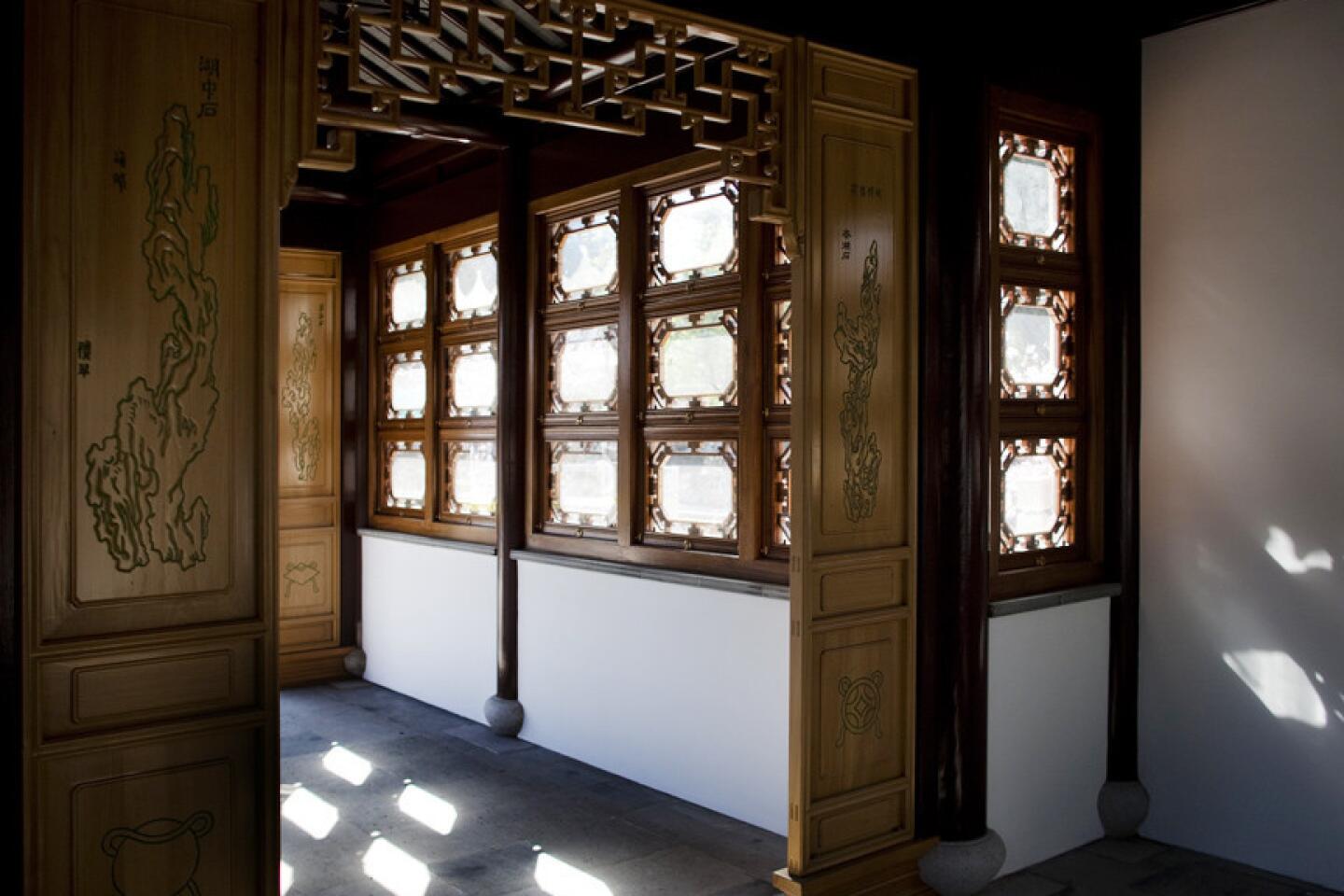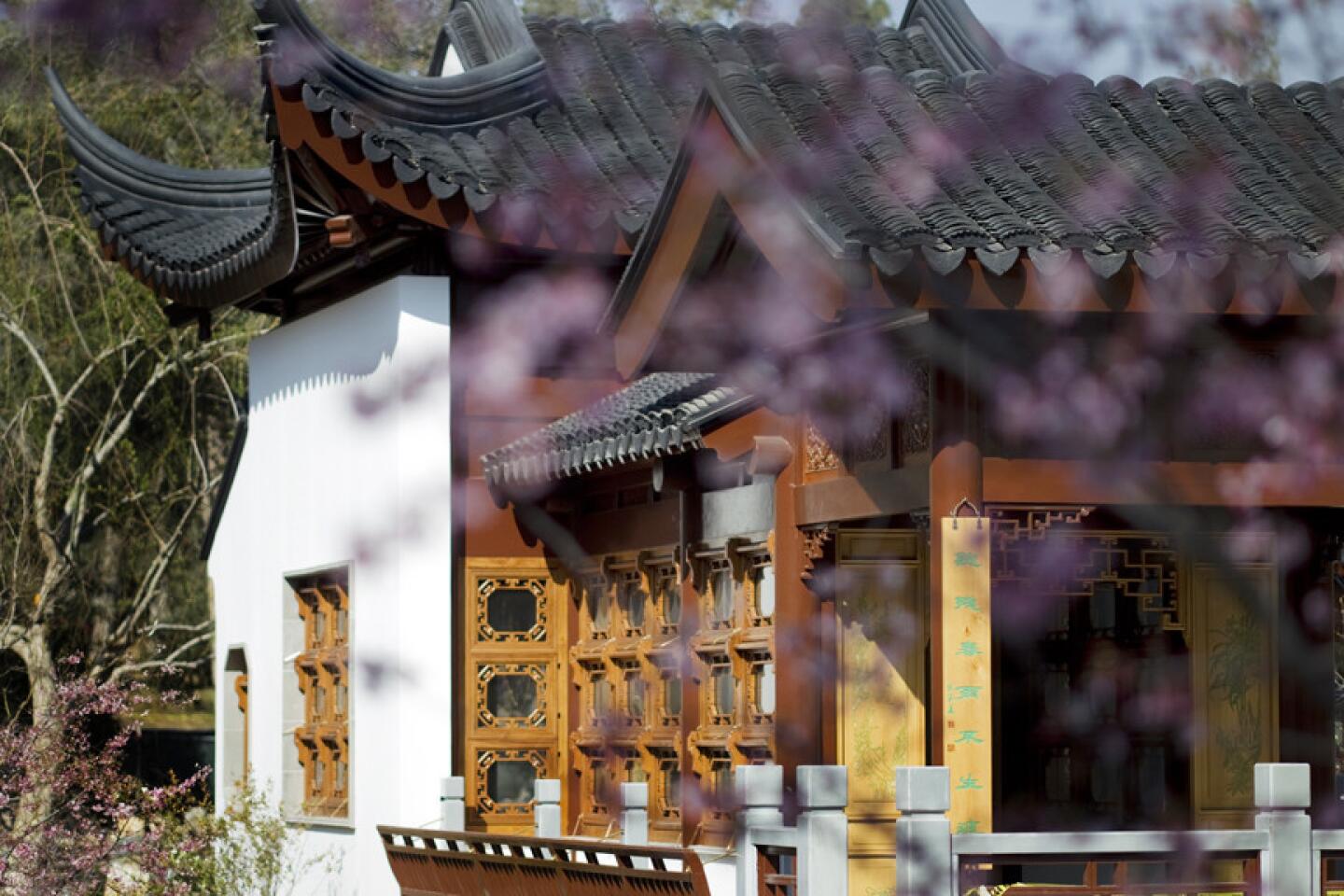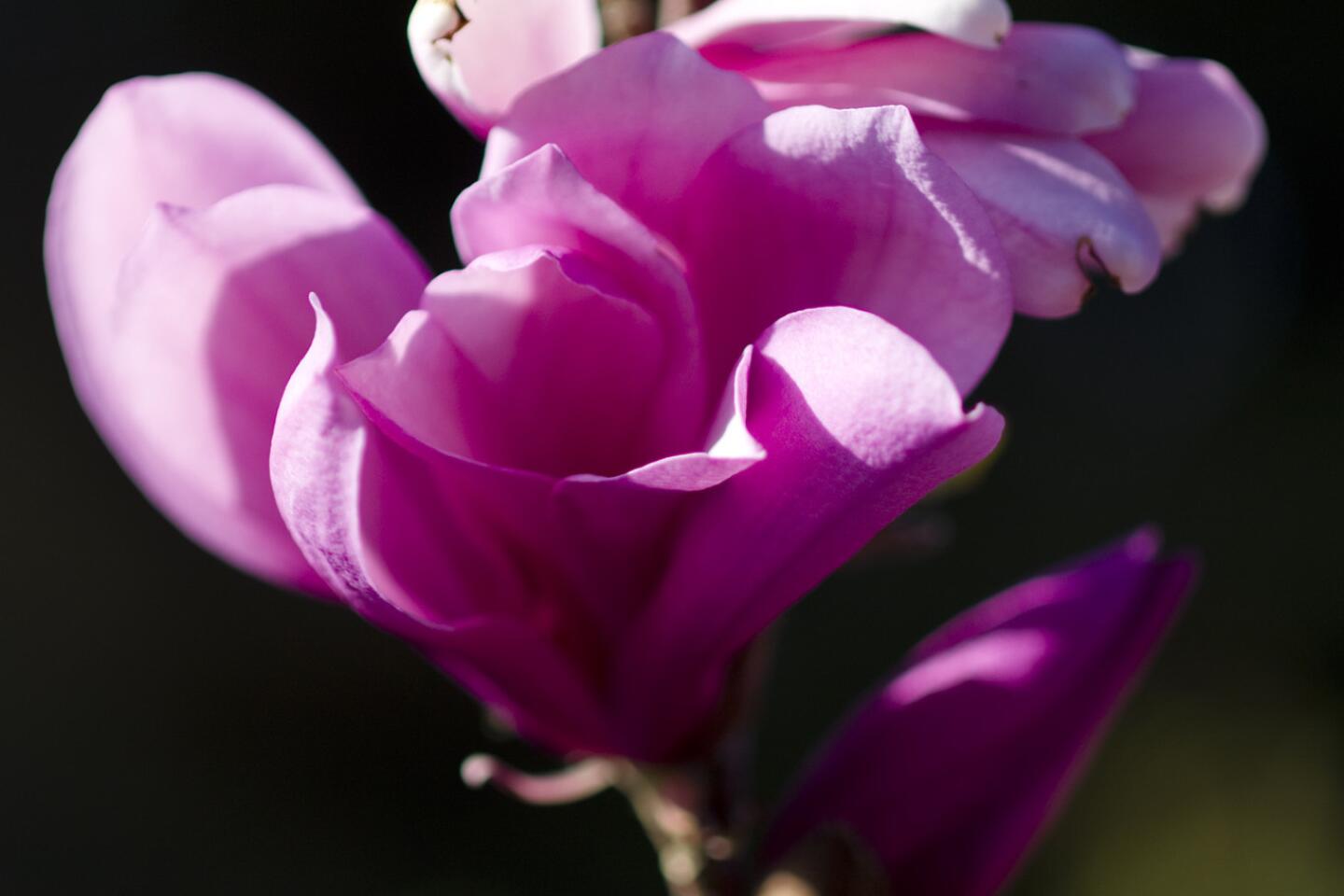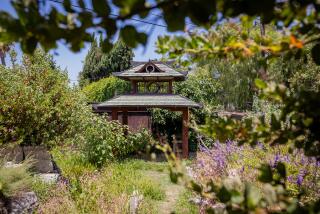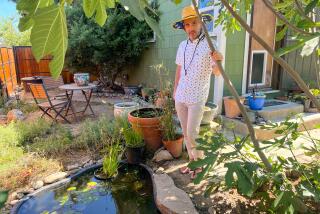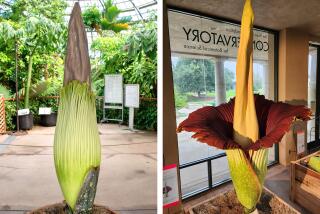Chinese Garden expansion at the Huntington includes new pavilions
Spring seems only around the corner at Liu Fang Yuan, or the Garden of Flowing Fragrance, at the Huntington Library, Art Collections and Botanical Gardens in San Marino. Delicate pink cherry blossoms have begun to appear on trees, and dappled sunlight warms the stone walkways.
There are other changes in the air at the Chinese Garden, as it is more informally known. Workers are putting finishing touches on new pavilions, walkways and landscaping as the newest garden in the Huntington’s collection of more than a dozen readies its first expansion since its 2008 opening.
On March 8 (March 7 for members), the Chinese Garden premieres three major new architectural elements as part of its second-phase expansion: two pavilions and a rock grotto with a waterfall that visitors can walk under. Still to come for the planned 12-acre site are a small gallery for Chinese art, a hillside pavilion and a penjing (a style of horticulture similar to Japanese bonsai) court. About half the $22 million needed to complete the project has been raised so far.
PHOTOS: Huntington expands its Chinese Garden
The Chinese Garden’s curator, June Li, leads a visitor around the 1.5-acre lake that forms the centerpiece of the Suzhou-style garden, which is modeled after the scholars gardens that thrived during the 16th and 17th century Ming dynasty. Li has helped oversee the creation of the garden since her arrival in 2004, and she also organizes exhibitions of Chinese art.
The path around the lake from the garden’s main entrance is lined with craggy limestone rocks from Lake Tai in China. A small bridge separates the older buildings from the new.
First up after the bridge is a pavilion with open sides, intricate woodwork and a tiled roof with ends that sweep jauntily upward. Li says that this pavilion is designed for visitors to linger in, rest and enjoy the views across the lake; built-in benches along the sides have curved backs.
The space is also designed for performances — music, plays and operas — and once the courtyard is completed, there will be seating for about 350. It’s called the Clear and Transcendent Pavilion, or Qing Yue Tai, to evoke the pureness of music floating over the water. The Huntington has already engaged its first musician in residence, noted pipa player Wu Man, who is composing a piece to premiere in June.
Inside the pavilion is a wide screen made of blond gingko wood. The north-facing upper panels show scenes from the classic Chinese play by Tang Xianzu, “The Peony Pavilion,” a 16th century love story that takes place in a garden. On the other side, facing the lake, the panels show four classic Chinese musical instruments, including the lute-like pipa.
“The garden fosters two major modes of enjoyment: solitude and society,” Wang-go Weng, Chinese scholar and advisor to the garden, has written. “It soothes worldly cares and anxieties and stimulates poetic and artistic sensibilities.”
Most of the visible man-made elements in the garden — columns, rafters, woodwork, tiles and granite bridges — were shipped from China, then assembled by 23 Suzhou workmen who were on site for four months.
“We really needed the Chinese craftsmen because they’re trained in the Chinese traditions of woodwork, roof tiles, laying out the paving,” Li says. “It’s as if we’re preserving the skills here in these buildings.”
Next on the winding path around the lake is the rock grotto — the Lingering Clouds Peak (Liu Yun Xiu). It’s a stack of Taihu rocks through which you can walk and enjoy a thunderous waterfall cascading over you.
“Traditionally they would just pile the rocks together, and they would be held by gravity and mortar,” Li says. However, due to California construction codes, the rocks have been reinforced in place. “In this case, all of these rocks in the ceiling and sides are secured to a cement frame.”
A little farther along is the Waveless Boat Pavilion (Bu Bo Xiao Ting), a pavilion shaped like a leisure boat that provides another spot for gatherings and for gazing at scenery. Everything in the Chinese Garden is designed for poetic and philosophical significance.
In Taoist and Confucian thought, mountains and rocks denote stability and endurance, while water is ever-changing but powerful. All the names of garden features suggest the beautiful or the auspicious. “Waveless” is a literary allusion to a calm and tranquil state of being — in other words, smooth sailing.
‘Cracked ice’ motif in the Huntington’s Chinese Garden
One of the many traditional elements woven into the new section of the Huntington’s Chinese Garden is a “cracked ice” pattern. In this case the diagonal lines are interspersed with a plum blossom design. The motif is seen in handmade gingko wood latticework around the moon gate entrances to the Clear and Transcendent Pavilion and in stone-and-ceramic pathways that link the new pavilions and the rock grotto. It also appears on the nearby Pavilion of the Three Friends, one of the original buildings.
The two symbols “often go together in the decorative arts,” says June Li, curator of the Chinese Garden. “Plum blossoms represent early spring when it’s still really cold, and thawing begins and the ice begins to crack.”
Li says the cracked ice pattern, which has been recorded since the 17th century but is probably older, looks modern to her eye. “I think of the Amish quilts. If you look at crazy quilts, it’s very random but it’s also very planned. And in a way that’s how the cracked ice pattern can develop. It makes for a very nice asymmetrical design.”
MORE:
Boll & Branch offers organic cotton sheets directly to consumers
‘Quilting With a Modern Slant’ provides inspiration for experimentation
Los Angeles Modern Auction sets record with Asawa, Nakashima works
JOIN THE CONVERSATION: @latimeshome | pinterest.com/latimeshome | facebook.com/latimeshome | facebook.com/latimesgarden
